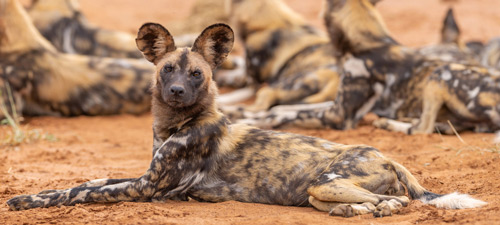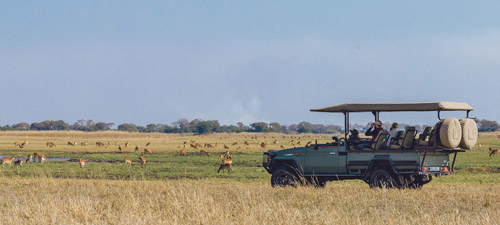South African farmers illegally breed tigers and other big cats for sale into the luxury goods and traditional medicine markets. This illegal tiger trade and associated big cat farming threatens the wild populations of these animals across the world, as illegal networks launder wild-poached and captive-bred animals and their body parts.
This and other revelations are contained in a new report compiled by the South African office of animal-welfare organisation FOUR PAWS. Note that in mid-2021, South Africa’s Minister of the Department of Forestry, Fisheries and Environment (DFFE), Barbara Creecy, announced plans for a complete ban on the controversial captive-lion breeding industry – but despite that, the industry remains firmly in place.
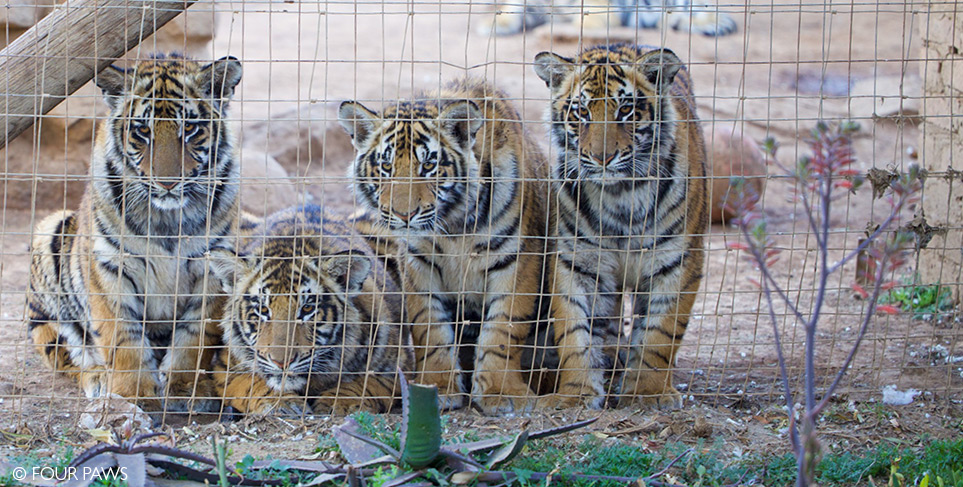
Other big cats bred and trophy hunted in South Africa for export include lions, leopards and jaguars. The report focuses on the captive-tiger industry in South Africa, but most issues raised also impact the other big cat species.
This commercial trade in tiger parts flouts agreements set out by the Convention on International Trade in Endangered Species of Wild Fauna and Flora (CITES) that state “tigers should not be bred for trade in their parts and derivatives.” Report author Kieran Harkin says: “It is clear that South Africa is overtly allowing tigers and other big cats to be intensively bred for commercial trade in their body parts. This is unacceptable as the farming of tigers for commercial trade has detrimental effects on wild tiger populations. South Africa is playing a significant role in contributing to the decline of a species that is non-native to Africa. They need to shut down this industry to help reverse the decline of all big cats and not just the tiger.”
“The lack of effective regulations for species like tigers combined with the existence of a legal captive-lion industry and bone trade, has allowed a legal industry to flourish, whilst also acting as a conduit for an illegal trade,” says Fiona Miles, Director of FOUR PAWS in South Africa.
The report ultimately calls for South Africa to end its big-cat industry and reverse its role as an exporter of big cats and their parts. This would give the relevant enforcement authorities a better chance to tackle the illegal trade within and from South Africa.
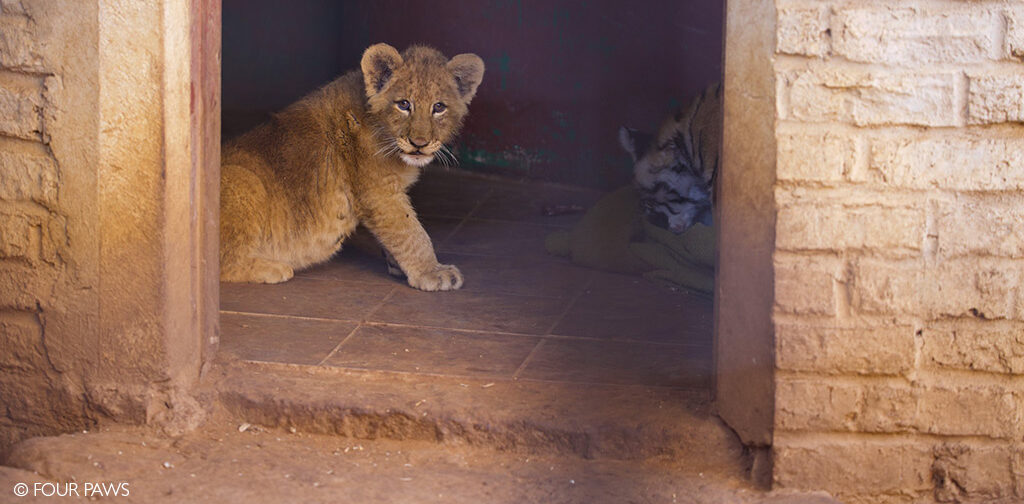
Notable extractions from the report
- Worldwide, there are an estimated three times as many tigers in captivity (+/- 12,600) as there are in the wild (4,400).
- The hunting and killing of tigers is permitted in all nine South African provinces.
- The regulations relating to the keeping, breeding, killing, and trading of tigers are so different between the nine South African provinces as to make effective management and record-keeping impossible.
- Most live tigers exported went to Vietnam, China and Bangladesh.
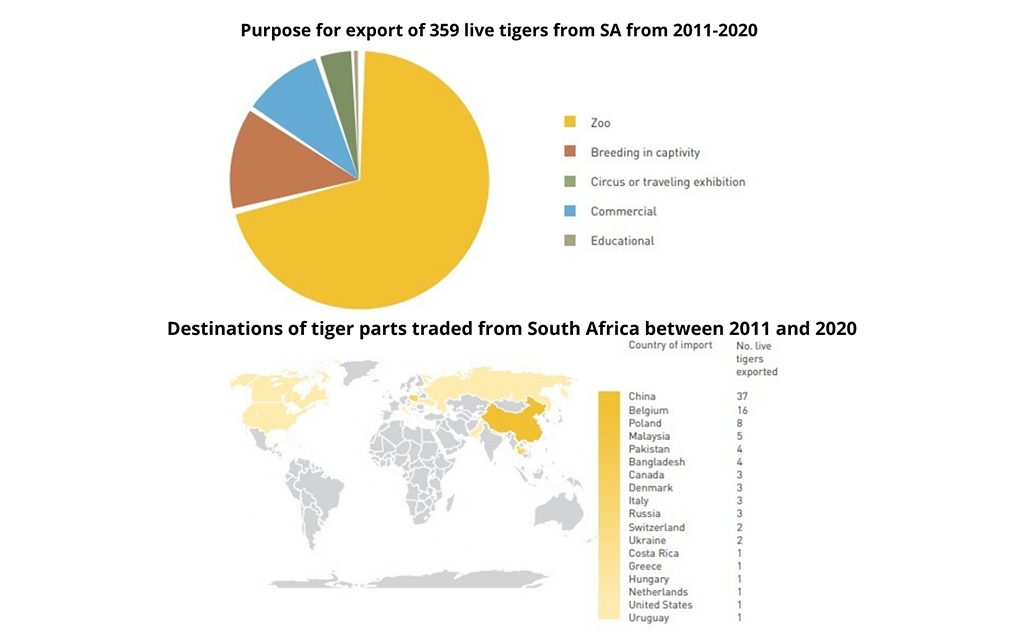
- The exact number of captive tigers in South Africa is not known. Requests to the provincial authorities for accurate tiger statistics were either ignored, replied to in part or confusing/inaccurate. Similarly, the volume of live tigers and tiger parts traded is unknown.
- A study of the CITES Trade Database reveals that 359 live tigers and 93 tiger ‘trophies’ were exported from South Africa between 2011 and 2020. In addition, 34 items exported were labelled as code ‘T’ (for commercial purposes) – a direct contravention of CITES Decision 14.69.
- There are no known tiger zoos or captive breeding facilities that introduce tigers into the wild or maintain studbooks to maintain genetic diversity. This is also a contravention of Cites Decision 14.69, which stipulates that the breeding of captive tigers is restricted to a ‘level supportive only to wild tigers.’
- CITES records in Egypt indicate that 15 live tigers were imported from South Africa, yet South African records indicate only 4 live tigers exported to Egypt. These discrepancies in CITES records are commonplace and ensure that proper analysis of the scale and nature of trade in wild species and their parts is impossible.
- Lions: South Africa exported 27,418 lions and lion parts between 2011 and 2020 – the majority of which were captive-bred.
- Leopards: South Africa exported 61 live leopards (of which 48 were captive-bred), 807 leopard ‘trophies’ and 374 skulls during 2011 and 2020.
- Big cats bred in South Africa and exported live are facilitating the growth of big cat breeding operations throughout the world.
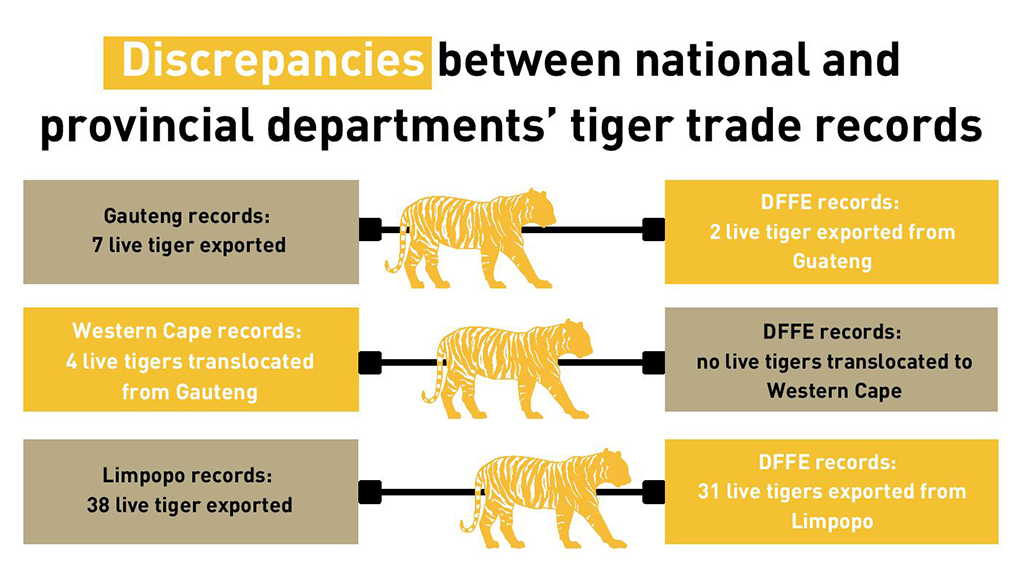
Recommendations from the report on the lion and tiger trade
As the legal industry has made the tiger trade and trafficking of lion parts easier, the report makes the following recommendations to minimise the negative effects of the intensive tiger- and lion- breeding industry:
- South Africa should end the commercial breeding of all big cats and the export and commercial trade in live animals and parts.
- A clause should be introduced whereby current owners can keep their living animals but must stop all breeding and allow the animals to see out their lives naturally – with all welfare needs met.
- Detection and law enforcement efforts around smuggling should be increased at South Africa’s entry and exit points.
- Awareness around the modus operandi of wildlife trafficking syndicates should be increased amongst key stakeholders.
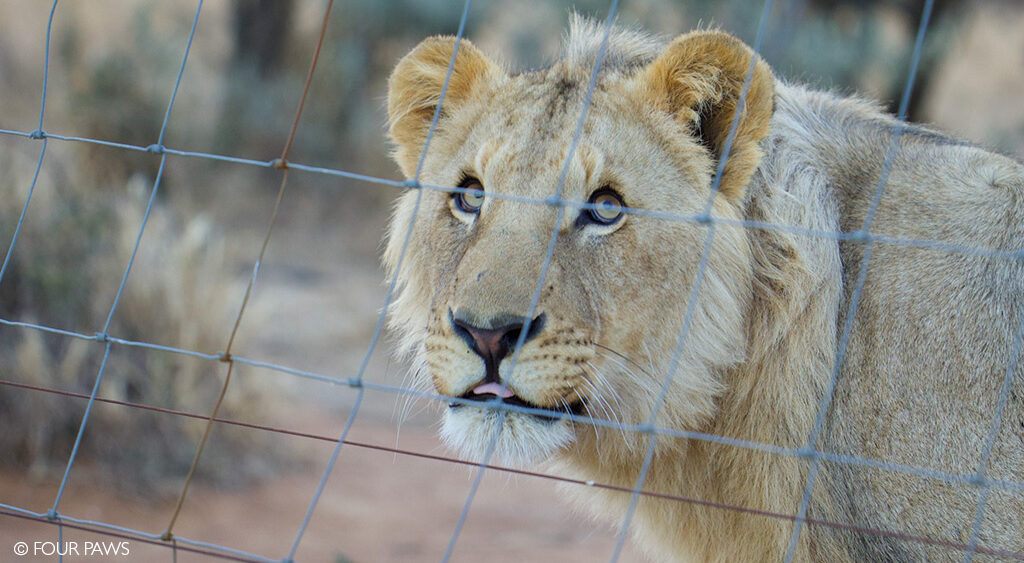
The majority of the 27,418 exported lions and lion parts from South Africa between 2011 and 2020 were captive-bred
Conclusion
South Africa has become a haven for the illicit big-cat breeding industry. It is clear from this report that nobody knows how many big cats are being kept in South Africa or the volume and nature of illegal and legal trade – least of all the relevant authorities required by law to control the industry and maintain accurate records. The burgeoning trade encourages illegal operations and contributes to the demise of wild big-cat populations. Neither international nor South African authorities effectively control the lion or tiger trade, or reign in the burgeoning illicit trade.
Resources
Full report: Harkin, K. & Locke, S. 2022. Year of the tiger? Big cat farming in South Africa: the need for international action. FOUR PAWS.
Read more on the ban of the captive lion industry in South Africa.
Read more on FOUR PAWS and their work in South Africa.
To comment on this story: Login (or sign up) to our app here - it's a troll-free safe place 🙂.![]()



